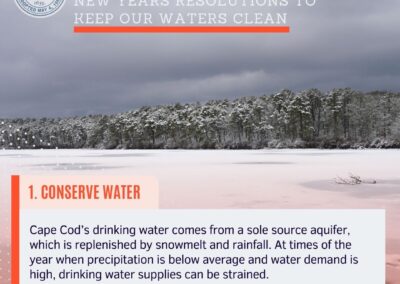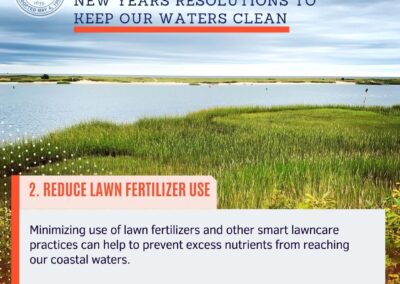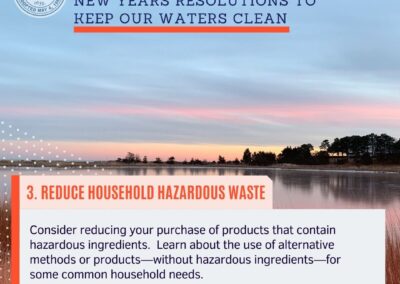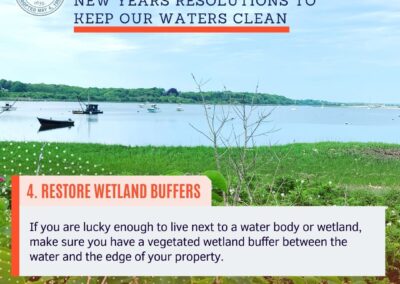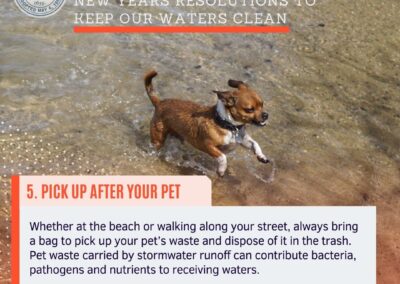1. Conserve Water
Cape Cod’s drinking water comes from a sole source aquifer, which is replenished by snowmelt and rainfall. At times of the year when precipitation is below average and water demand is high, drinking water supplies can be strained. For ideas on how to conserve water in your home, visit
https://www3.epa.gov/region1/eco/drinkwater/water_conservation_residents.html
Every drop counts!
2. Reduce Lawn Fertilizer Use
Minimizing use of lawn fertilizers and other smart lawncare practices can help to prevent excess nutrients from reaching our coastal waters. Check out these easy to use eco-friendly lawn tips from US EPA:
3. Reduce Household Hazardous Waste
Consider reducing your purchase of products that contain hazardous ingredients. Learn about the use of alternative methods or products—without hazardous ingredients—for some common household needs. When shopping for items such as multipurpose household cleaners, toilet cleaners, laundry detergent, dish soap, dishwashing machine pods and gels, bug sprays and insect pest control, consider shopping for environmentally friendly, natural products or search online for simple recipes you can use to create your own.
Visit US EPA’s Safe Choice website for more information about selecting safe household products https://www.epa.gov/saferchoice
4. Restore Wetland Buffers
If you are lucky enough to live next to a water body or wetland, make sure you have a vegetated wetland buffer between the water and the edge of your property. Naturally vegetated buffers with native plants slow the pace of run-off that can cause erosion, filter pollutants in run-off before they enter the water body, and provide habitat to birds and wildlife. More information about the importance of vegetated buffers is available from your local Conservation Commission and this guide: https://www.mass.gov/doc/the-massachusetts-vegetated-buffer-manual/download
5. Pick up after your pet
Whether at the beach or walking along your street, always bring a bag to pick up your pet’s waste and dispose of it in the trash. Pet waste carried by stormwater runoff can contribute bacteria, pathogens and nutrients to receiving waters. Learn more about the hazards of pet waste and responsible practices here https://www.mass.gov/info-details/pet-waste-and-bathing-beaches

